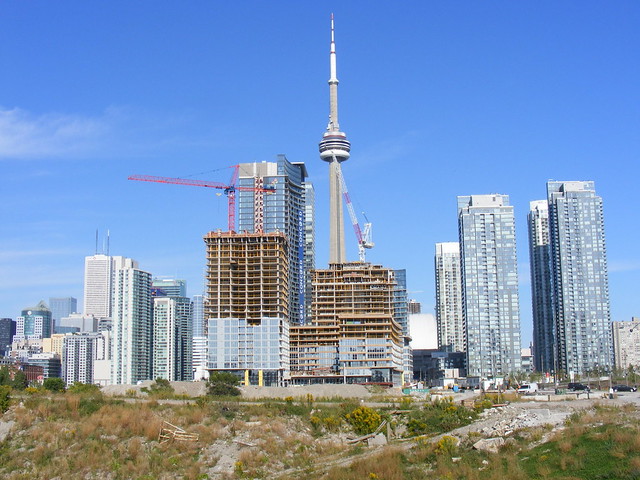Spacing Saturday highlights posts from across Spacing’s blog network in Vancouver, Toronto, Montreal, Ottawa, and the Atlantic region.

Toronto’s City Place Neighbourhood Rises

![]()
From the position of a former Policy Adviser and Senior Assistant to a councillor, Donna Silver presents the top ten ways to reduce unnecessary tension between citizens and their planning department and restore confidence in city planning.
As part of the Forgotten Vanier feature Mike Steinhauer looks at the rise and fall of the Butler Motor Hotel as a parable for the history of small family-run motels across Canada and the fading built legacy they left.
![]()
Guillaume St-Jean looks at an attractive redevelopment on the site of a former hospital for infectious disease which has sat abandoned since 1978. The proposal tastefully incorporates key structures of the old site surrounded by low-rise condominiums.
The Montage du Jour feature once again highlights that while time has dramatically altered some parts of Montreal, other parts remain very much that same, at least in built form.
![]()
Could you cycle between Montreal and Toronto in three days? Niki Siabanis presents the first in a series of posts intimately and honestly describing a summer three day cycling journey between Canada’s two largest cities.
The jury is still out on City Place, the forest of sleek glass condominiums taking shape on Toronto’s former railway lands. Ryan Bolton gives readers an inside scoop from a resident of the community, finding it far from a ghetto but still in need of some love.
Don Schuetze continues the theme of urban screen, sharing his experience of stumbling across the opening night of a Surrey art exhibition and witnessing the reactions to it.
Yuri Artibise reviews The Chuck Davis History of Metropolitan Vancouver written largely by Chuck Davis, the city’s unofficial historian, and completed posthumously by friends and admirers. Artibise concludes that the book is perhaps the most accessible history of Vancouver yet written, talking down the idea that city has no history.
Photograph by: Sean Marshall
